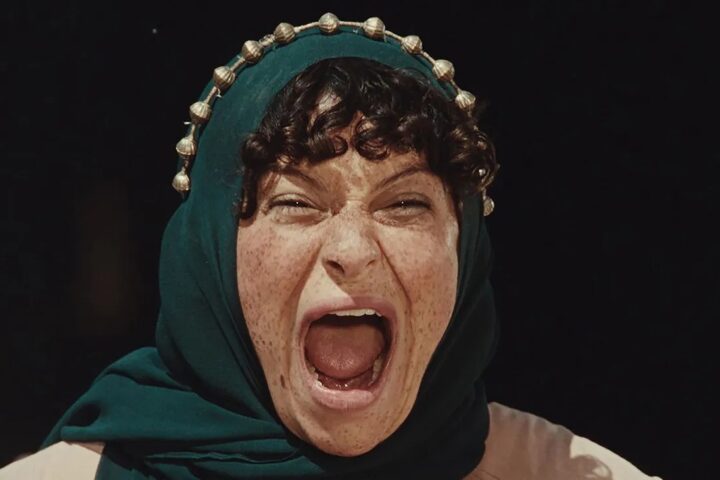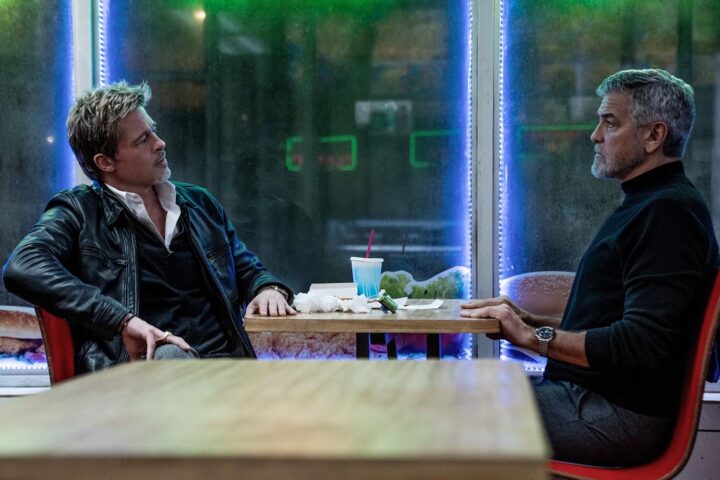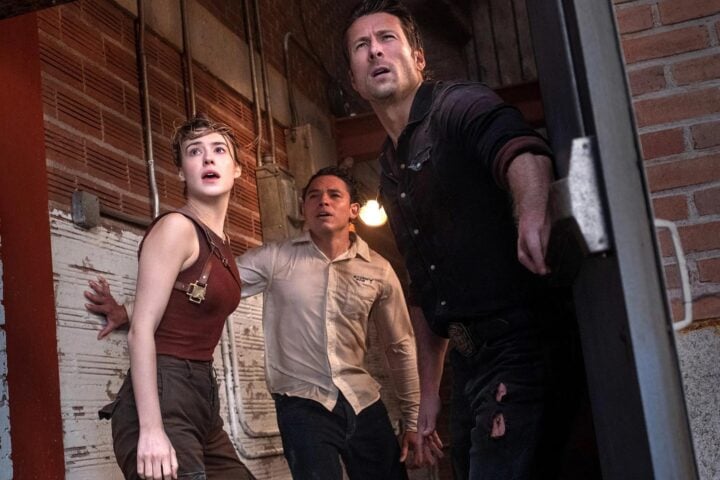For a while it seemed like George Clooney was his generation’s heir apparent to Cary Grant, a bona fide movie star whose limited range is rendered irrelevant by his irrepressible charisma. And then he started directing films and, at least out of the gate things seemed momentarily more interesting. His 2002 directorial debut, Confessions of a Dangerous Mind, came on breezy but grounded, certainly the most approachable take on a Charlie Kaufman screenplay ever mounted. And 2005’s Good Night, and Good Luck, his tribute to the mandarin days of television news, was at least palpably committed to lionizing Eisenhower-era liberal resistance. In other words, he looked to become the heir apparent to Robert Redford, auteur.
It didn’t last. The title of Clooney’s The Monuments Men, just about sums it up. His obsession with what he perceives as the achievements and moral clarity of those (read: Americans) who lived (immediately) before him almost wholly strip him of his ability to helm works of any nuance or intrigue. “Dad cinema” only scratches the surface of Clooney’s aversion to anything that would disrupt his sexless hagiography. The Boys in the Boat, an adaptation of Daniel James Brown’s bestselling nonfiction book of the same name, might well be Clooney’s touchstone work in that sense. It looks Abercrombie, but it feels like knockoff Jack Wills.
In detailing the University of Washington rowing team’s rags-against-riches but never improbable victory at the 1936 Berlin Olympics, under the specter of Adolf Hitler, Mark L. Smith’s screenplay recycles every corny “Greatest Generation” cliché imaginable, defying plot synopsis as a moot point. Centering on Joe Rantz (played earnestly by twunky but distractingly Aryan Callum Turner), who embodies the heart and soul of Depression-era grit and determination, The Boys in the Boat checks its boxes right from its Saving Private Ryan-derived flashback wraparound through Joe’s compulsory romantic subplot with a character (Hadley Robinson) whose name no audience member will be able to recall post-credits.
As the team’s coach, Joel Edgerton keeps his lips stiff, his gaze steely, and his quips reassuringly glib as his pugnacious blue-collar workhorses blow past, first, the effete, upper-class Yalie snobs riding out the decade’s financial storm and, second, literal Nazis. The film doesn’t break a single mold, and it doesn’t take long to realize that—especially in this moment of American (and entertainment) history—that’s entirely the point, and in perfect sync with unquestioned patriotism. Clooney clearly sees himself as one of classical Hollywood’s few remaining coxswains, sitting comfortably in his position of authority and directing his team of craftspeople to pump out their product assembly-style, rowing in one clear, simple direction and “as one.”
Since 2001, we've brought you uncompromising, candid takes on the world of film, music, television, video games, theater, and more. Independently owned and operated publications like Slant have been hit hard in recent years, but we’re committed to keeping our content free and accessible—meaning no paywalls or fees.
If you like what we do, please consider subscribing to our Patreon or making a donation.




